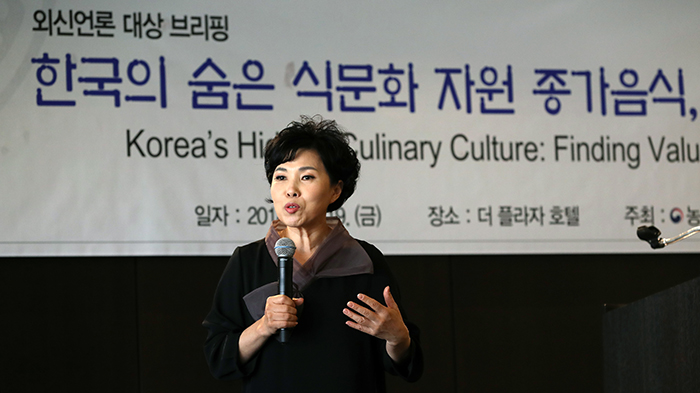
Director-General Han Gwijeong from the National Institute of Agricultural Sciences explains the importance of the recipes from head families during the press briefing held at the Plaza Hotel in Seoul on Oct. 19.
By Park Hye-ri and Kim Young Shin
Photos = Jeon Han
Seoul | Oct. 19, 2018
“The food from the jongga, the head families (종가, 宗家) of old, respected clans, is a resource that shows Korea’s unique food culture as it represents traditional cuisine as well as the lives of the members of the head houses,” said Han Gwijeong, the director-general of the National Institute of Agricultural Sciences under the Rural Development Administration (RDA) during a press briefing held at the Plaza Hotel on Oct. 19.
Handed down from mothers-in-law to daughters-in-law for some 400 years, jongga food contains the natural environment and culture of the region in which it is located.
The recipes from the head families include famous bibimbap, rice mixed with various vegetables, bulgogi marinated beef, japchae noodles and kimchi. Although they seem no different from the ordinary Korean food sold at any restaurant, they are made in special ways only practiced in the kitchen of the head families.
“There are more than eight types of soy sauce used for different recipes in each of the kitchens of head families,” said Chef Kim Chang Hoon, who is also the culinary department director of Hanwha Hotels & Resorts. He has been promoting the dishes from 12 jongga families in nine cities since September. “There exists more than 96 types of soy sauce used by the 12 families, and they all make a difference to the dishes made by wives of these jongga families,” he continued.
“These families have been using local, seasonal ingredients for their recipes,” said the chef. “The hotel asked for the actual sauces used by jongbu, the wife of the eldest descendent of the head families, to replicate the jongga recipes here today.”
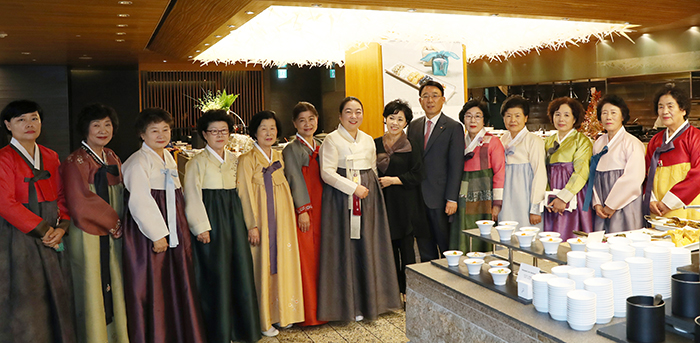
The 12 jongbu, the wives of the eldest male descendants of the head families and the inheritors of the jongga recipes, pose for group photo with Director-General Han Gwijeong from the National Institute of Agricultural Sciences (eighth from left) and CEO Kim Young-cheol of Hanwha Hotels & Resorts (ninth from left) during the press briefing held at the Plaza Hotel, Seoul on Oct. 19.
“We visited 12 head families to transcribe the jongga recipes and the know-how of the jongbu,” said Kim Young-cheol, the President & CEO of Hanwha Hotels & Resorts. “We will continue to promote the excellent jongga food.”
“Starting in 2010, we researched 2,457 different dishes from 143 families and collected the data of 441 recipes from 78 jongga,” said Director-General Han. “We will exert all our efforts so that the general public will be able to obtain the healthy and traditional jongga food.”
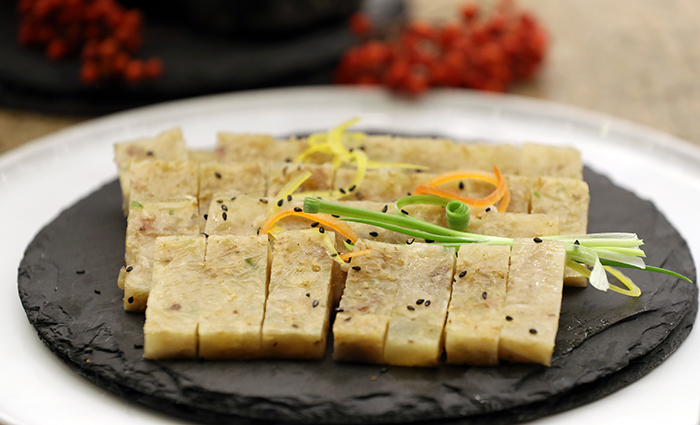
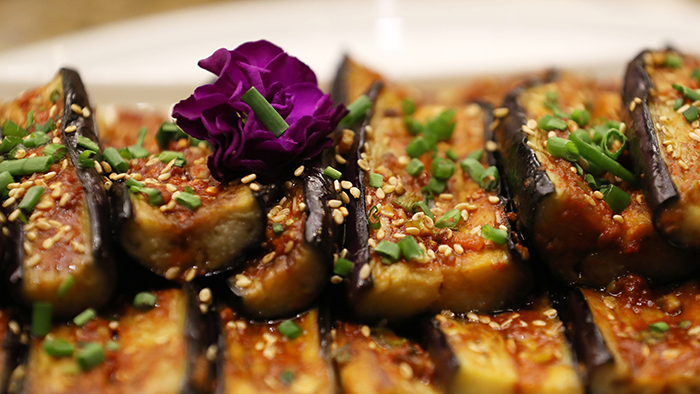
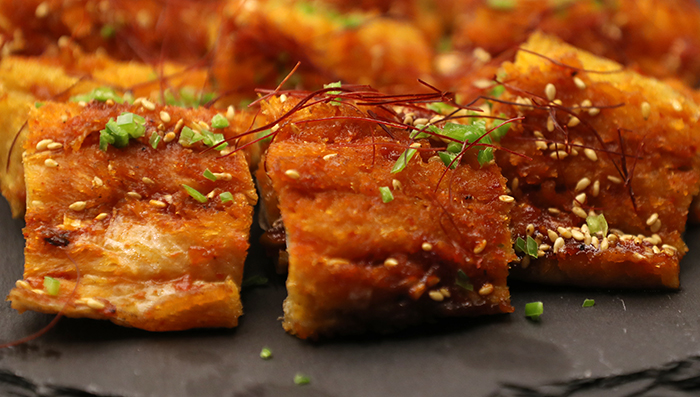
Boiled pig’s feet (족편), seasoned eggplants (가지불고기), and grilled dried pollack with spicy sauce (황태 양념구이) are some of the dishes from the 12 jongga head families presented to the press during the briefing held at the Plaza Hotel in Seoul on Oct. 19.
hrhr@korea.kr